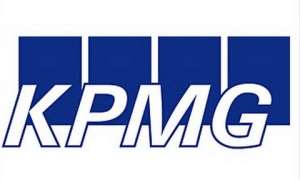
Chairman of KPMG has admitted that Britain’s largest accounting firms risk eroding public trust in the profession after a series of scandals and must re-evaluate their business models to prevent conflicts of interest.
The comments from Bill Michael, who took over as head of KPMG UK in September, come as the Big Four accountancy firms, which also include PWC, Deloitte, and EY, face growing scrutiny from politicians and the industry regulator over the rapid growth of their advisory practices.
Critics say that lucrative advisory work risks encouraging staff to prioritise advising clients over auditing their financial results properly.
Mr Michael said: “If advisory services are allowed to grow and grow we may find ourselves in a situation where nobody pitches for audits. That’s not good for markets or investors.”
KPMG, PWC, Deloitte and EY have faced increasing pressure to break up their UK businesses, with Rachel Reeves, chairwoman of the business select committee, among those calling for it.
Corporate collapses such as that of Carillion, the public contractor, and the retailer BHS have shone a spotlight on the firms’ work as auditors and consultants for Britain’s largest companies.
KPMG repeatedly signed off Carillion’s accounts in the years before its collapse in January. The Financial Reporting Council, the accounting watchdog, is investigating KPMG’s work on Carillion and last month criticised the firm for an “unacceptable deterioration” in the quality of its audits. KPMG has defended its work on Carillion.
KPMG UK employs about 15,000 partners and staff, with 3,600 of those working in its audit practice.
Its tax consulting, deal advisory, management and risk consulting practices have grown in recent years and now employ about 7,500 staff. Mr Michael said that he welcomed a review of the Big Four and of auditing generally.
The Institute of Chartered Accountants in England and Wales, the FRC, and the industry-backed Audit Quality Forum are about to launch a government-backed review that will consider whether the existing model for auditing is fit for purpose and are looking for an independent business leader to chair it.
“The profession needs to be re-evaluated, otherwise we run the risk of eroding trust,” Mr Michael said. “We can’t have a profession that isn’t trusted. It has consequences for society and the capital markets. You only need one bad apple to lose trust in the system. So I’m a proponent of making some of these changes.”
However, the KPMG boss said that he did not support a call for a break-up of the Big Four that could result in firms being forced to spin out their audit practices.
A damning parliamentary inquiry into the collapse of Carillion called for the competition watchdog to investigate the Big Four and accused them of being a “cosy club incapable of providing the degree of independent challenge needed”.
Mr Michael said: “You can’t split out audit right now. It would be like trying to create Frankenstein’s monster. You can’t create a reputable audit practice from lots of different body parts, you’ll kill it.”
Nonetheless, Mr Michael said that he would also support a debate on whether the size of non-audit practices at the Big Four should be restricted.
He said that KPMG found it increasingly difficult to plan for conflicts in its audits practice because of its size.
“Being a multidisciplinary firm shouldn’t give you a blank slate to do anything you want to,” he said. “Audit firms present a systemic risk and a systemic benefit to society so it is important that the system is re-evaluated and improved, and is subject to effective regulation.”




 2024 elections: Resign if you can't be faithful to party - Sagnarigu NDC PC desc...
2024 elections: Resign if you can't be faithful to party - Sagnarigu NDC PC desc...
 Five arrested, remanded over alleged murder of two police officers at Transacco
Five arrested, remanded over alleged murder of two police officers at Transacco
 Tax exemptions better than incentives for churches – Tax Analyst tell Bawumia
Tax exemptions better than incentives for churches – Tax Analyst tell Bawumia
 Transport Minister sues Law Platform Editor for defamation
Transport Minister sues Law Platform Editor for defamation
 Voter registration: Police arrest NPP Treasurer for Mpohor for registering minor
Voter registration: Police arrest NPP Treasurer for Mpohor for registering minor
 "This nonsense must stop" — Lawrence Tetteh vows to march to Jubilee House over ...
"This nonsense must stop" — Lawrence Tetteh vows to march to Jubilee House over ...
 2024 elections: “If indeed you stand for peaceful elections the time is now for ...
2024 elections: “If indeed you stand for peaceful elections the time is now for ...
 I have the attributes to be president of this country — Bernard Monarh
I have the attributes to be president of this country — Bernard Monarh
 Cecilia Dapaah saga: ‘Turf war’ between AG, EOCO, OSP indicates they’re not ‘cor...
Cecilia Dapaah saga: ‘Turf war’ between AG, EOCO, OSP indicates they’re not ‘cor...
 Ghana will become the first African country to embrace blockchain-powered gover...
Ghana will become the first African country to embrace blockchain-powered gover...
